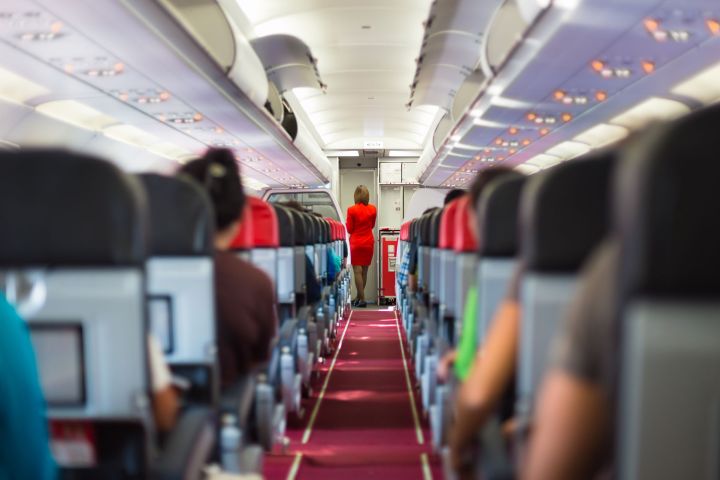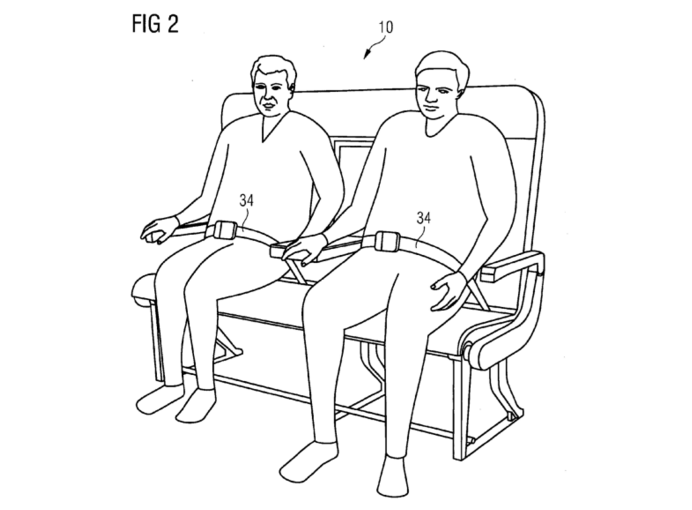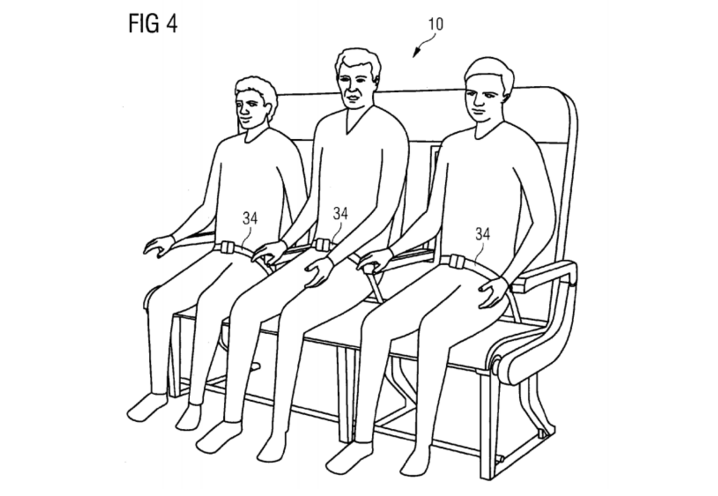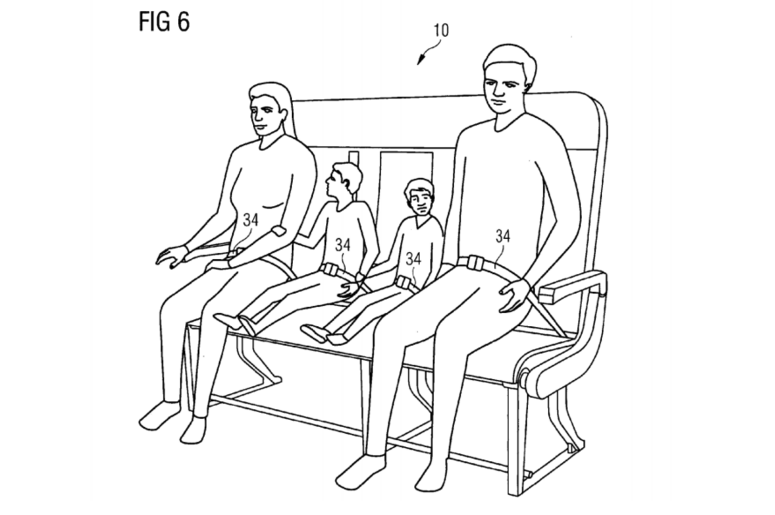
To be fair, its latest brainstorm isn’t quite up there with its bizarre passenger-stacking idea, or indeed its apparent plan for butt-busting bicycle-saddle seating. Titled “re-configurable passenger bench seat,” it admittedly doesn’t sound like a big win for passenger comfort, though once you discover what it’s all about, you may actually find the idea appealing.
The new kind of seat outlined in the patent aims to better utilize the limited space on planes with a system that can be quickly adjusted to accommodate the appropriate number of people depending on their size.
The aircraft maker has provided a number of dubious pencil drawings in a bid to effectively explain the thinking behind its bench-seat patent.
It’s fair to say this first image looks pretty unspectacular, showing as it does two large adults side by side, with a smaller-than-usual armrest between them. Look closely and the bench design is clearly visible, with the next image below going some way to highlighting its versatility.
As you can see, the two large adults have been replaced by three fairly slim individuals, with armrests still available for each passenger to provide extra comfort and mark out personal space.
The final drawing shows the same seat but now occupied by an entire family – mom and dad, and two sort of miniaturized kids.
If you can get the “bench” name out of your head and imagine the final design looking a bit comfier with proper cushioning and the like, it’s a design that could actually work for passengers as well as airlines. For L-size fliers, one of these seats could be just the ticket, while some parents may find the design makes it easier to take care of the kids. One concern, however, is that without decent headrests, slumbering fliers may inadvertently use their neighbor’s shoulder instead. Not exactly a fun prospect for a long-haul flight.
It’s by no means certain that Airbus will ever introduce its bench seats, but the fact that it’s patented the design certainly makes it a possibility.
What’s slightly more alarming is another Airbus patent that surfaced earlier this month for under-seat storage for current seat designs. It lets you place small items in a compartment accessible by lifting your seat.
Sounds convenient, but then consider that such a design would remove much of your legroom as the compartment of the seat in front would take it all up. And then there’s the issue of trying to access the box in such a tight space, your neighbor’s butt possibly coming too close for comfort as they maneuver to gain access to their belongings. We’re not sure this particular idea will fly, Airbus.






